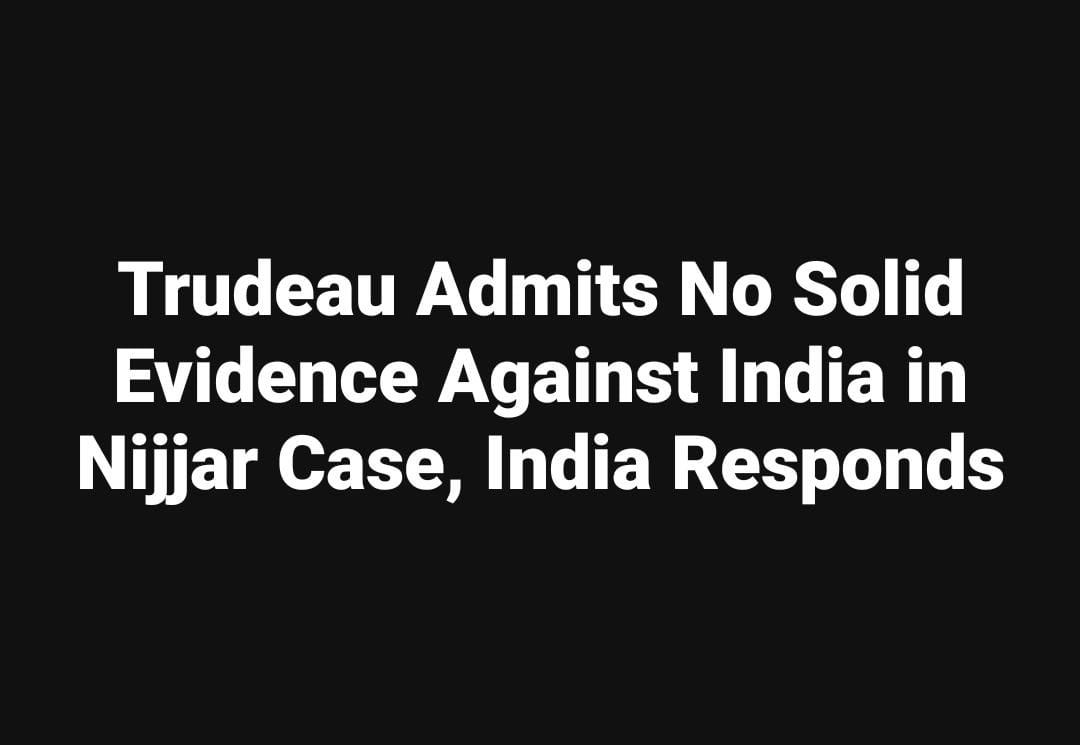National/International Business Desk
17 October
Sandeep Dhand Ludhiana
Canadian Prime Minister Justin Trudeau recently admitted that Canada does not have solid evidence linking India to the killing of Sikh separatist Hardeep Singh Nijjar last year. He stated that the allegations against India were based on intelligence information only. In response, India’s Ministry of External Affairs said that Trudeau’s statement confirms what India has been saying all along – that Canada has not provided any evidence to support the serious accusations made by Ottawa against India and its diplomats.
India’s External Affairs Ministry spokesperson, Randhir Jaiswal, emphasized that Trudeau’s reckless behavior has caused the deterioration of relations between the two countries. Jaiswal pointed out that at least 26 extradition requests have been pending with Canada, some for over a decade, highlighting that Canada has not acted on these matters.

India had consistently demanded concrete evidence for the allegations, but the Canadian government only provided intelligence reports, not solid proof. Trudeau also mentioned that India might feel Canada is not taking violence, extremism, or hate speech seriously enough.
Last year, Trudeau had claimed in the Canadian Parliament that he had “authentic information” about India’s involvement in the killing of Nijjar. India rejected these claims as “ridiculous” and “motivated.” Following these allegations, tensions between the two countries escalated.
Recently, after Canada declared several Indian diplomats as “Persons of Interest,” India responded by recalling six of its diplomats from Canada and asking six Canadian diplomats to leave the country, further straining bilateral ties.
India holds Canada’s government responsible for the collapse of relations and continues to demand credible evidence, asserting that mere intelligence reports are insufficient for such serious accusations.
